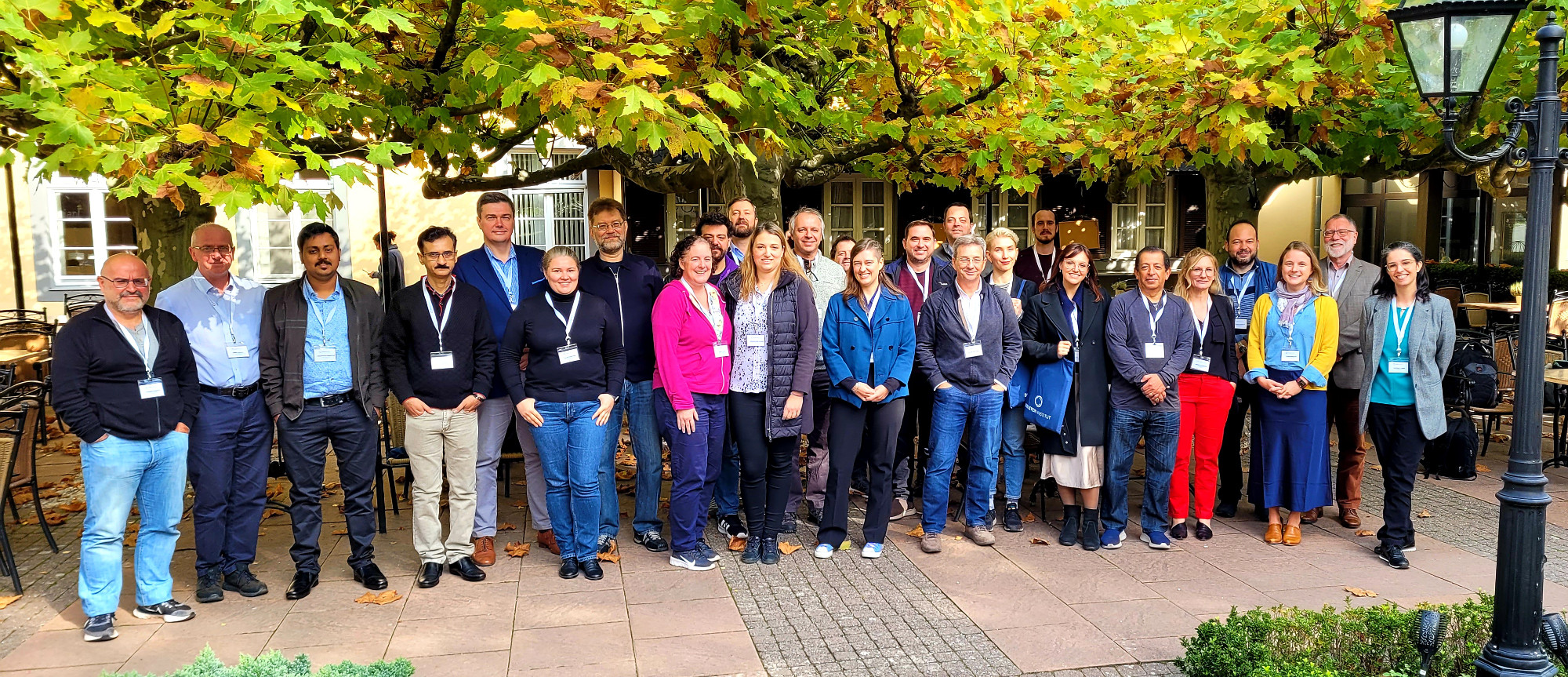October 11–13, 2022
Hotel Jagdschloss Niederwald, Rüdesheim, Germany
Scientific Committee:
Iseult Lynch / University of Birmingham
Georgia Melagraki / Hellenic Military Academy

9:00
Welcome and Introduction
Session chair: Georgia Melagraki
9:20
First principles characterisation of nanomaterials for predictive nanoinformatics
Vladimir Lobaskin / University College Dublin, Ireland
10:00
Machine learning for magnetic materials discovery
Stefano Sanvito / Trinity College Dublin, Ireland
10:40
Coffee break
11:10
Simulation of materials processing: towards design of new atomic and molecular layer deposition processes
Michael Nolan / University College Cork, Ireland
11:50
POSTER INTRODUCTION
Short introduction of all posters
12:30
Lunch
Session chair: Dario Greco
14:00
How to represent nanoparticles structure in data-based predicting models?
Tomasz Puzyn / University of Gdańsk, Poland
14:40
Combining machine learning and materials modelling for toxicity assessments
Pietro Asinari / National Institute of Metrological Research, Turin, Italy
15:20
Coffee break
15:50
NanoInformaTIX, understanding nanomaterials at molecular scale to predict properties, reactivity and (eco)toxicity: connecting the dots in a predictive plattform
Miguel A. Bañares / CSIC, Spain
16:30
Rational design of drug nanodelivery systems using machine learning and molecular simulations approaches
Alexander Tropsha / The University of North Carolina at Chapel Hill, USA
17:10
End of talks
18:00
POSTER SESSION
20:00
End of poster session
20:00
Dinner
8:30
Welcome
Session chair: Miguel A. Bañares
8:40
FAIR nanosafety data for nanoinformatics
Penny Nymark / Karolinska Institute, Sweden
9:20
Interoperability and reuse with identifiers
Egon L. Willighagen / Maastricht University, The Netherlands
10:00
Isalos Analytics and Enalos Tools & Cloud Platform: innovative tools for nanoInformatics research
Antreas Afantitis / NovaMechanics Ltd, Nicosia, Cyprus
10:40
Coffee break
11:10
Transitioning to predictive analysis for nanoparticle corona studies
Korin Wheeler / Santa Clara University, USA
11:50
Applications of nanoinformatics in sustainable and precision agriculture
Iseult Lynch / University of Birmingham, UK
12:30
Lunch
14:00
EXCURSION
17:30
End of excursion
19:00
Dinner
9:00
Welcome
Session chair: Korin Wheeler
9:10
Graphene-based materials: from single- to mixture ecotoxicity and challenges for nanoinformatics
Diego S.T. Martinez / Brazilian Center for Research in Energy and Materials, Brazil
9:50
Nano-read-across predictions of ecotoxicity data of metal oxide nanoparticles
Kunal Roy / Jadavpur University, India
10:30
Coffee break
11:00
Nanoinformatics data-driven models for (eco)toxicological assessment
Georgia Melagraki / Hellenic Military Academy, Greece
11:40
Environmental impact assessment of engineering nanomaterials: integration of models, data and the body of evidence for decision-support
Yoram Cohen / University of California, Los Angeles, USA
12:20
Lunch
Session chair: Iseult Lynch
13:40
Assessment of the toxicity of metal oxide nanoparticles by a multi-target perturbation theory machine learning approach
M. Natália D.S. Cordeiro / University of Porto, Portugal
14:20
Towards novel chemoinformatic tools for the safety assessment of nanomaterials
Agnieszka Gajewicz-Skretna / University of Gdańsk, Poland
15:00
Coffee break
15:30
Toxicogenomics and IATA for the development of new chemicals drugs, and materials: the FHAIVE experience
Dario Greco / Tampere University, Finland
16:10
Nanoinformatics as a tool to support next generation risk assessment of nanomaterials
Mark Cronin / Liverpool John Moores University, UK
16:50
Farewell
17:10
End of program
19:00
Dinner
No. 1:
First report on the application of q-RASPR to predict the specific surface area of perovskites
Arkaprava Banerjee / Jadavpur University, India
No. 2:
A gene regulation model reveals an ancestral adaptation response to particulate exposure triggered by nanomaterials
Giusy del Giudice / Tampere University, Finland
No. 3:
Intrinsic properties of multiwalled carbon nanotubes affect the polarization of THP-1 macrophages
Veera Hautanen / Tampere University, Finland
No. 4:
Quality evaluation of in vitro toxicity studies for regulatory assessment of nanomaterial risks – the SciRAPnano approach
Gen Shao / Karolinska Institute, Sweden
No. 5:
Multiscale modelling of protein adsorption onto pristine and functionalised zero-valent noble metal nanoparticles
Julia Subbotina / University College Dublin, Ireland